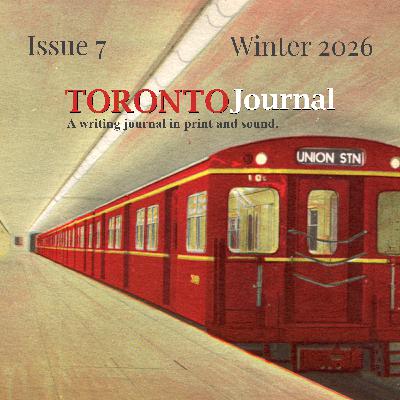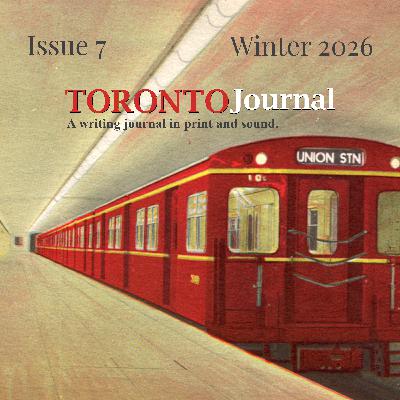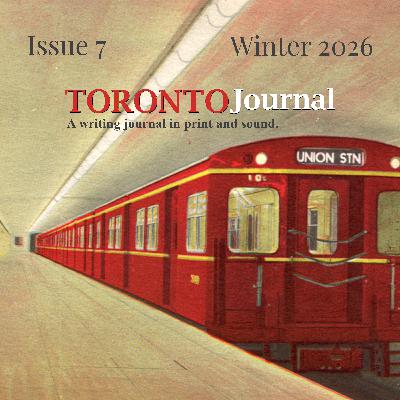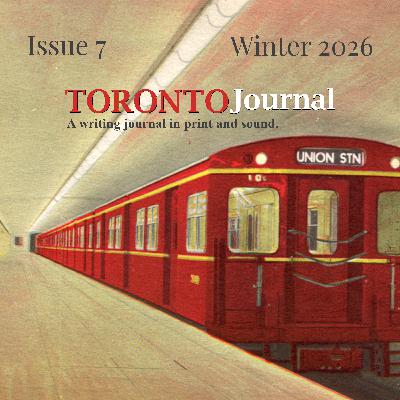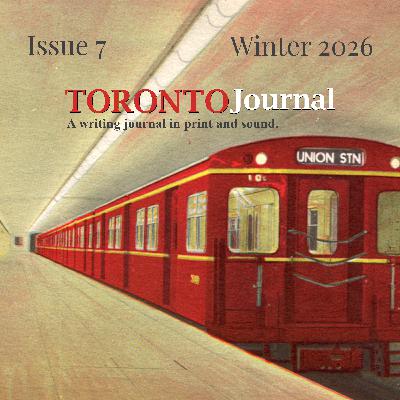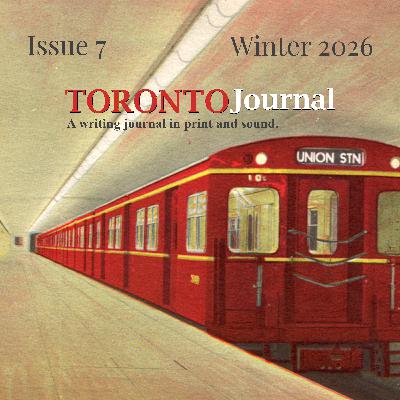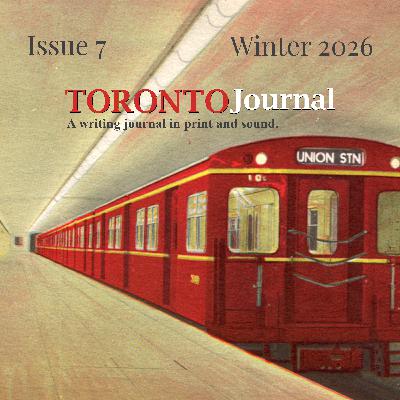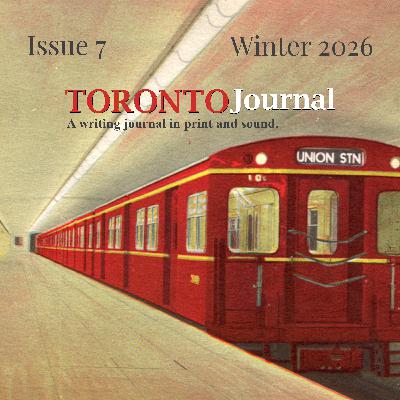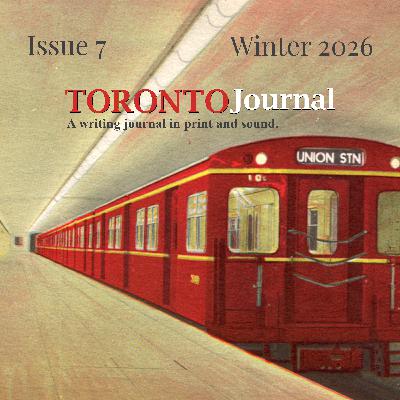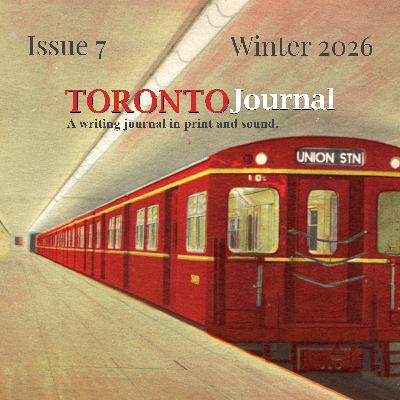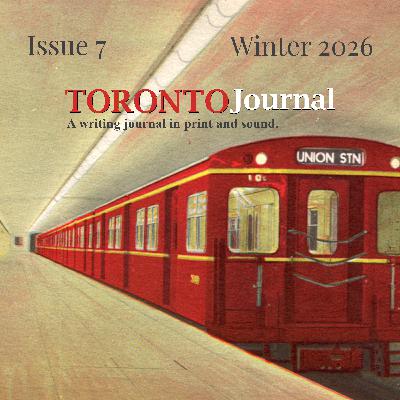Discover Toronto Journal
Toronto Journal

77 Episodes
Reverse
Welcome to the seventh issue of Toronto Journal, and . . . weall know what it’s like to leave things to the last minute. Narrated by Brigid Cami.
HISTORY FEATURE. I’m not entirely certain if Charles Dickens ever rode the London Underground . . . but, in theory, he could have – and that’s good enough for me.Narrated by the author.
STORIES FROM THE CITY. In the fall of 1942, with the Second World War raging, my father wanted to join the fight. But Doug Clark was six months shy of his eighteenth birthday and required parental permission to enlist in the Canadian military. Narrated by the author.
FICTION. All those motorists sitting at traffic lights cursing, should realize that it is not HydroQuebec’s fault. – Hydro-Quebec, 1989.Narrated by Anthony Salvalaggio.
FICTION. On Friday evenings, Tara treated herself to a medium oxtail with rice and peas. ‘I work hard and I deserve it,’ she convinced herself, knowing the twenty-dollar meal was pricey on her monthly budget.Narrated by the author.
FICTION. Marlborough Street was a dream. Sylvia met me in front of Women's College Hospital after her shift, and then we took the bus up to her house in Rosedale. Narrated by Brigid Cami.
FICTION. When I finally went to therapy, we ended up talking a lot about my third year of college. It’s one of those things that you wouldn’t anticipate at first, but it ends up making so much sense you can’t believe you didn’t see it coming.Narrated by the author.
FICTION. The brilliant morning light slicing through the east-facing window leaves Annika feeling exposed. Christopher will continue to lie there on their king-sized bed in all his sweaty, naked glory, but Annika cannot. Narrated by the author.
FICTION. Rebecca was leaving him with the baby. After five months, it was surely time that she went out for an evening with friends, yet despite reassurances that he’d be fine – “The main thing is to put her down by eight, and maybe give her a bath” – Ethan was still nervous.Narrated by the author.
FICTION. "Make sure you cut off all the green stuff,” I say to my little sister. Eva’s black pigtails are a mess. Loose strands fall to the side as she tilts her head. Narrated by Brigid Cami.
FICTION. I look at the floor-to-ceiling windows of my office and see nothing but my own reflection in the glass. It is already dark outside when I leave my job on Paulista, an avenue lined with financial institutions and the offices of foreign companies. Narrated by Elizabeth Howton.
FICTION. Like everyone else, I ignored Emily Rubenfeld. Maybe I always found her fascinating and just called the feeling pity, I don’t know, but it was easy enough to mind my own business and just lump her in with the other social outcasts. Narrated by the author.
FICTION. The light had failed a long time ago. The research, the injections, even the gridlines you had to look at to check if your macular degeneration was getting worse – all these had come too late for Vera. She was blind. Narrated by the author.
FICTION. Security at Puffin Luxury Rentals is no laughing matter: the new contract covers all four buildings in closed-circuit video and includes a daytime patrol (one guard, one gate attendant) and a nighttime patrol (one guard), to the tune of $20,000/month. Narrated by the author.
Welcome to the sixth issue of Toronto Journal . . . and we hope you’ll excuse us for beginning with a few lines of shameless self-promotion.Narrated by Anthony Salvalaggio.
HISTORY FEATURE. There is a housing shortage. We are encouraged to consume Canadian produce. And the federal government is contemplating modular housing. The year is 1941. Narrated by the author.
STORIES FROM THE CITY. Memory is a fragile and malleable thing. How is it that we remember some insignificant fact or interaction for an entire lifetime, while other events disappear into oblivion, calved off like chunks of ice from a glacier, to float away and melt as if they had never existed?Narrated by Anthony Salvalaggio.
FICTION. It was 6:42 A.M., and I was sitting in the dark, waiting for the first fragment of dawn to put an end to that interminable night.Narrated by Brigid Cami.
FICTION. My family used to rent a cottage at Sauble Beach every summer. It was a shack really, with uneven floors, draftywindows, and plumbing that sputtered, farted, and screeched every time the water was turned on.Narrated by Erica Salvalaggio.
FICTION. The day I stopped crying, my ex-wife, Kate, made a particularly cruel remark, immediately putting my resolve to the test.Narrated by the author.



